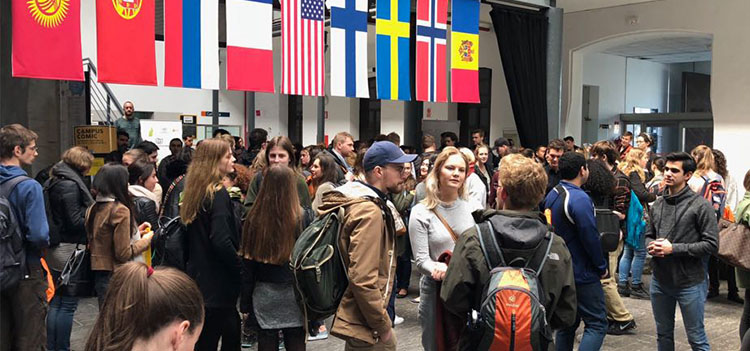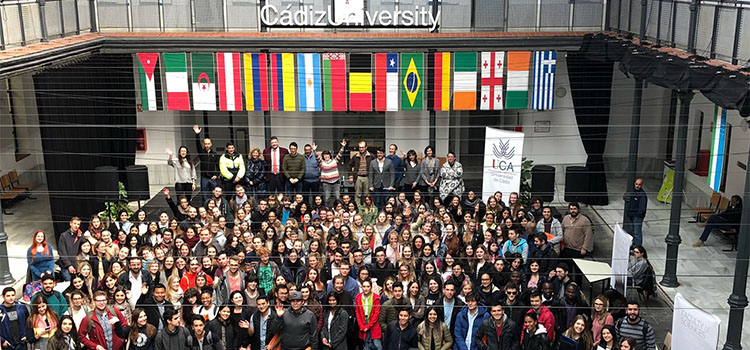More than 500 Erasmus students and Visitors from 36 countries choose UCA to study during the second semester 27 February 2018
Photo Gallery
The University of Cádiz has welcomed them today at the Cádiz Campus. They come from European countries and partners from the rest of the world. In total, more than 1,000 Erasmus students in 2017/18 will be received
The University of Cádiz receives these days in its four campuses more than 500 foreign university students. In total, we had more than a thousand incoming Erasmus during the 2017/18 academic year, 350 of whom will study at UCA during this second semester. They belong to the KA103 programs (EU countries) and KA107 (partner countries of the rest of the world), which together with 172 young people from the International Mobility program (Visitor) represent an international student body from 36 different countries in Europe, America, Asia, Africa and Oceania.
The Vice-rector of Students of the University of Cádiz, Concha Valero, accompanied by the Director for Mobility and International Affairs, Rafael Vélez, today chaired the inaugural event addressed to both Erasmus and Visiting students (especially from the USA, Australia, Latin America and the post-Soviet space) and the System of Exchange between Spanish University Centers (SICUE) in the Constitución 1812 building.
The welcome act has also had the presence of academic and local representatives. The courtyard of the building has hosted the stands of the centers and services of the University, where its participants have received information about the characteristics of their academic stay at UCA and the services of the University of Cádiz, as well as useful information on the life in the province.
In the Erasmus program, Italy, Germany and France are the countries with the largest number of students from Europe and, from the rest of the world, Russia, Algeria and Morocco. Regarding the International Mobility, the places of origin in this semester with more participation are Mexico, Russia and the United States.
Also, in terms of subjects of study, young foreigners have preference for the faculties of Philosophy and Literature and Economic and Business Sciences.

The International Relations Office (ORI) of UCA has held several registration sessions in recent weeks to welcome the beneficiaries of both mobility programs (KA103 and KA107), as well as the International Mobility Program. In these meetings, which take place in Spanish, English and Russian, initial doubts are solved and information is provided on the different mobility programs, the rights and obligations of the students, the difference between the tasks of the ORI, the tutors and academic coordinators of mobility, the infrastructures of the University of Cádiz, the steps to be carried out to formalize the registration, the payments of the grants for the ERASMUS KA107, the access to the academic file, the possibility of prolonging the stay, the processing of the report of grades and signature management for arrival and departure certificates, among others. They have also been told about different aspects such as transport schedules and vouchers, cultural and sports offer, etc.


